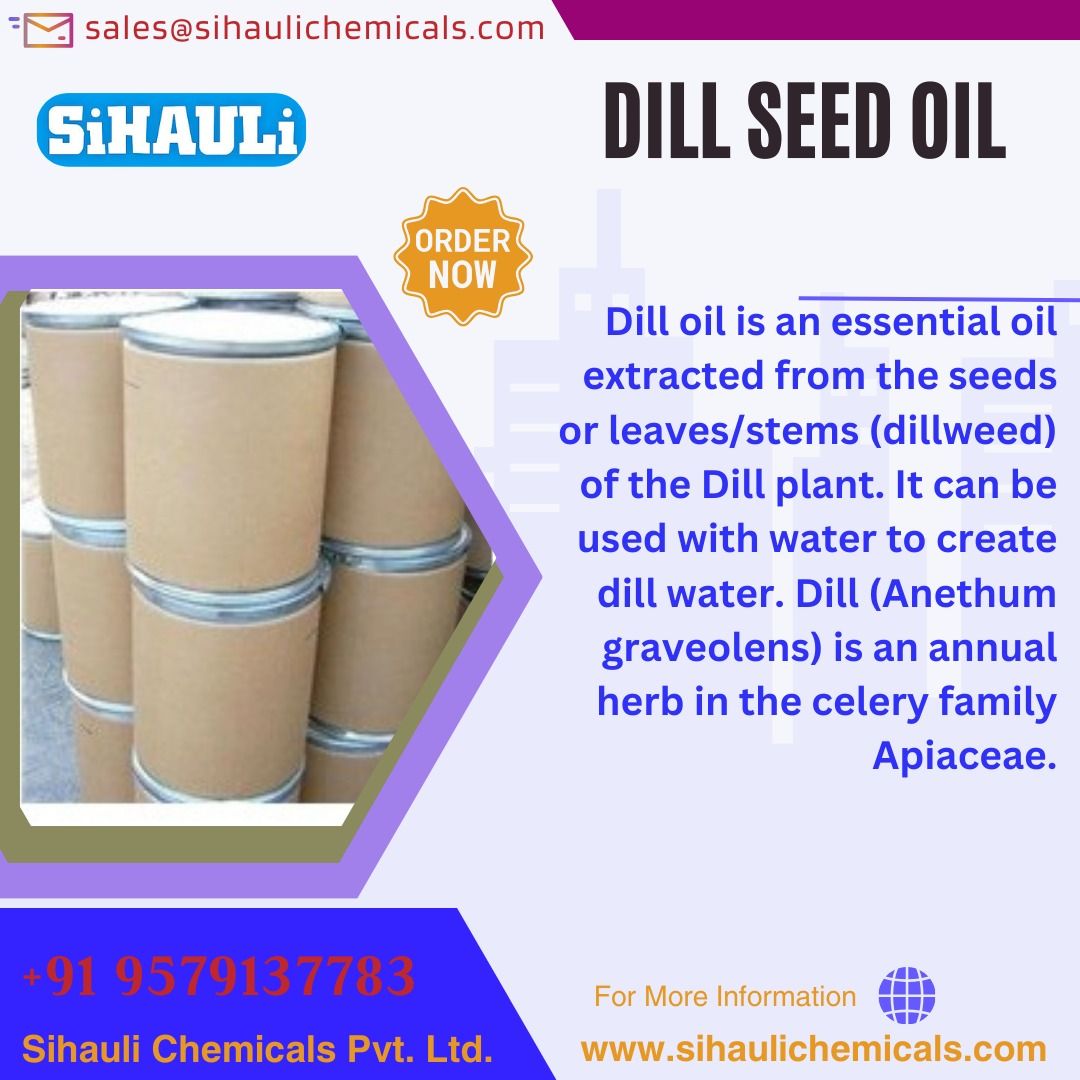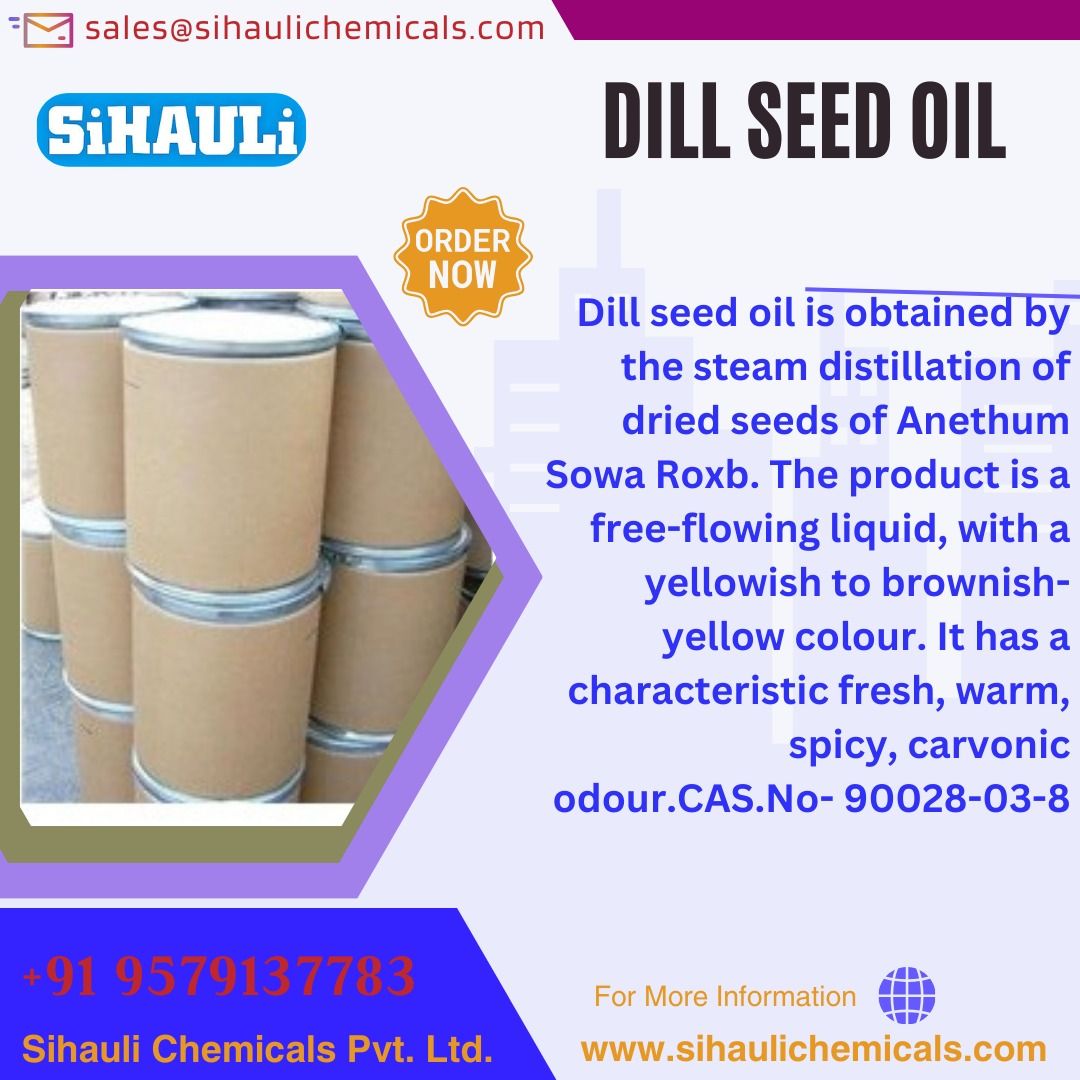Dill seed oil is derived from the seeds of the dill plant, scientifically known as Anethum graveolens, through a process called steam distillation. Dill is a herb that is commonly used in culinary applications, and its essential oil is known for its unique flavor and various potential health benefits. Here are some key points about dill seed oil:
- Aroma and Flavor:
- Dill seed oil has a warm, sweet, and slightly spicy aroma.
- It possesses a flavor reminiscent of the dill herb, which is often described as fresh, grassy, and slightly anise-like.
- Therapeutic Properties:
- Digestive Aid: Dill seed oil is often used to aid digestion and relieve digestive discomfort.
- Antispasmodic: It may have antispasmodic properties, making it useful for alleviating muscle spasms.
- Common Uses:
- Culinary Applications: Dill seed oil is used in small amounts in culinary settings to add a distinct flavor to dishes, especially in pickling, sauces, and salad dressings.
- Aromatherapy: The aroma of dill seed oil is sometimes used in aromatherapy to promote a sense of calm and relaxation.
- Health Benefits:
- Dill seed oil is believed to have potential health benefits, including anti-inflammatory and antimicrobial properties.
- Some traditional medicine practices use dill seed oil for its purported ability to support respiratory health.
- Caution:
- Dill seed oil is generally considered safe when used in appropriate dilutions for culinary or aromatic purposes.
- As with any essential oil, it should be properly diluted before topical application, and individuals with specific health concerns should consult with a healthcare professional.
- Recipes:
- Dill Salad Dressing:
- Mix olive oil, vinegar, a touch of honey, salt, and a drop or two of dill seed oil for a flavorful salad dressing.
- Digestive Aid Blend:
- Combine a carrier oil with a drop of dill seed oil and gently massage onto the abdomen in a clockwise direction.
Always use essential oils judiciously, follow recommended dilution guidelines, and consider personal health conditions before using them. If in doubt or for specific health concerns, consult with a qualified aromatherapist or healthcare professional.













Reviews
There are no reviews yet.